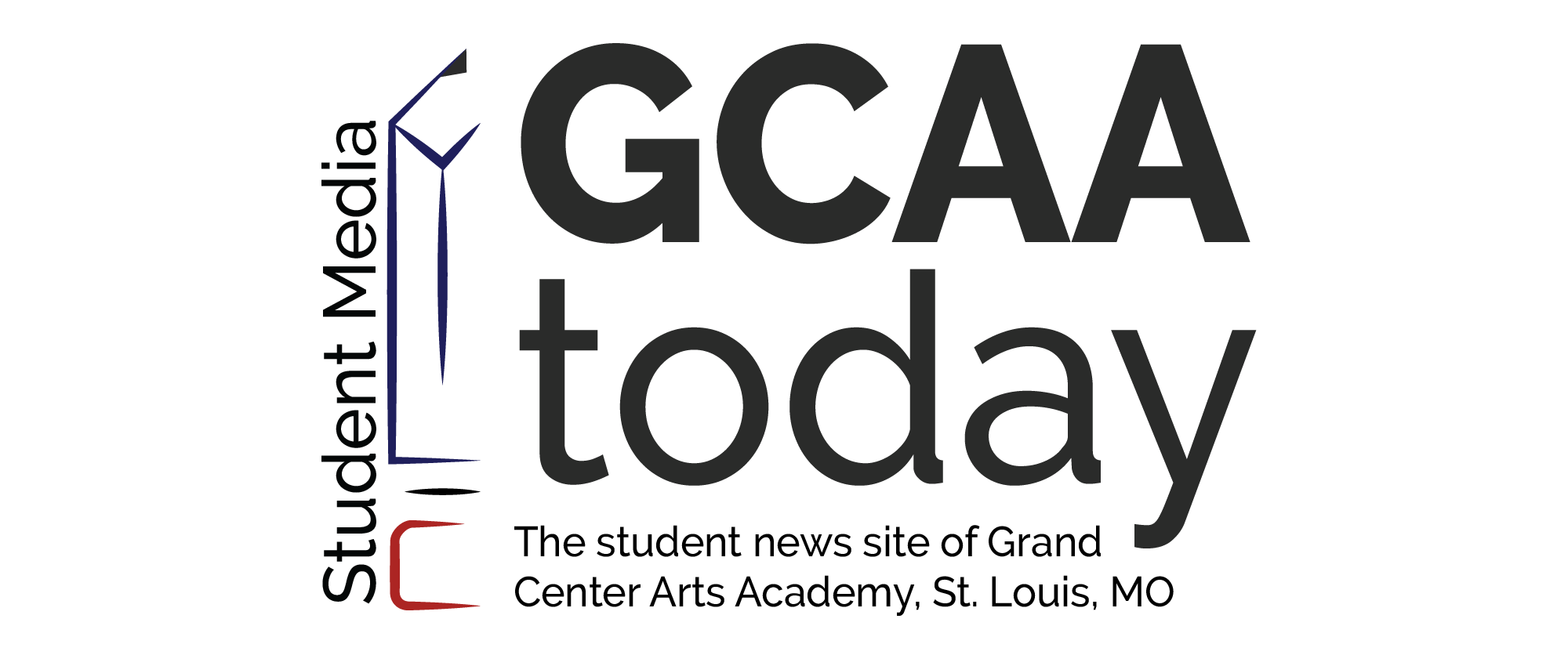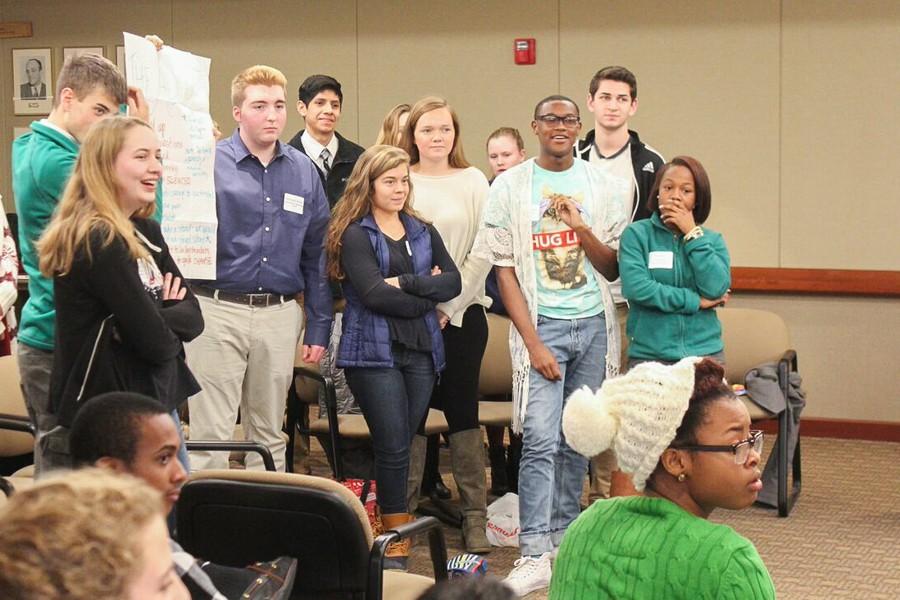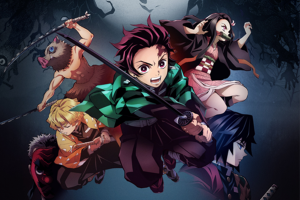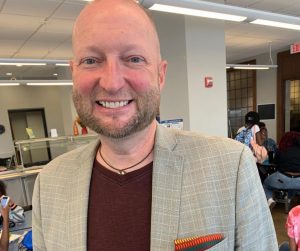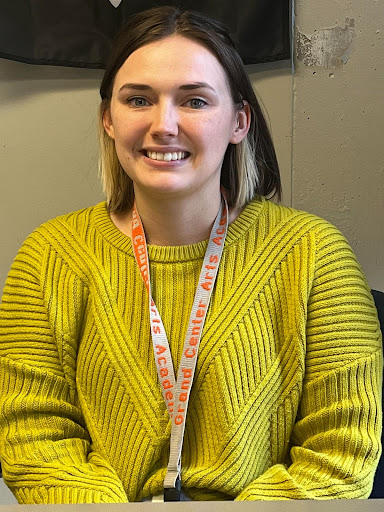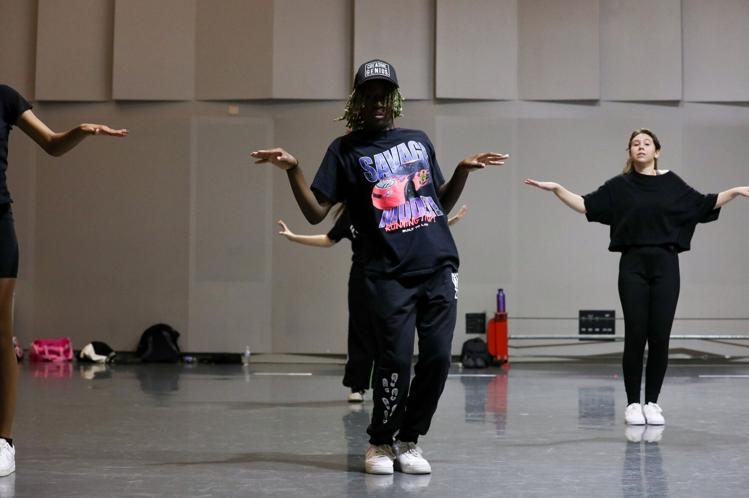Privilege and Oppression
March 28, 2016
“The real damage is done by those millions who want to ‘survive.’ The honest men who just want to be left in peace. Those who don’t want their little lives disturbed by anything bigger than themselves.” – Sophie Scholl
When people become aware of oppression happening, many times they choose to not say anything. The concept of the “silent majority” is not a new one, but still exists just as much as it has in the past.
A simulation I experienced recently has surprising similarities to oppression and privilege in general society. On Tuesday, January 12, a few students and I visited the Holocaust Museum on a field trip.
After a tour of the museum itself, we gathered in a room and were told to sit down. Before we began to discuss the museum, a third of the students were asked to step outside. The students who were still left in the room got their lunches, along with other snacks that were provided. At one point, I heard someone ask where the other students had gone, to which the only response was that they were doing a separate activity. Soon after, I saw the third group re-enter the room through the back door, and I could hear the advisers with them telling them to sit down and face the wall. It wasn’t long before I realized that this was a simulation. The program was trying to see how we would respond to prejudice; we were the privileged, the others were those targeted. I also realized at this point that I had to decide how I was going to respond, or whether I would respond at all.
At the end of the activity, I knew that I couldn’t let myself be faced with the question “Why didn’t you do anything?” so I spoke to the leaders and asked why the other group couldn’t be a part of the discussion. After avoiding my question, another woman, an adviser, told me to follow her out of the room, where I joined several others who had spoken out or gone against them in any way. We were told we were the “dead” group, and we were supposed to wait for it to be over. Once the simulation was finished, we re-entered the room to discuss what had happened. I was disappointed to see that the majority of the privileged group were still in the room, having said nothing.
We were split into three groups upon re-entry; the privileged, the targeted, and the advocates. I joined the advocate group, along with most of the people put outside. Each group was asked to gather information about what their experience was in order to share with the whole group in a longer discussion.
The discussion itself was the most memorable part for me. The privileged group went first, explaining that most of them had seen what happened but chose to ignore it. Some said they thought they wouldn’t change anything, some said they enjoyed their privileges and didn’t want to risk them, and a few pointed out that there was nothing wrong with them having privileges; it wasn’t their fault someone else was being oppressed. Although some didn’t know or understand what was happening, those who dominated the conversation claimed they were fully aware of the situation. Many even said they felt no guilt or shame for staying silent.
Out of the entire simulation, the most shocking part for me was the fact that the majority of the room stayed in their seats. I had hoped that people would want to help those in need, but it was really disappointing to see that not only did they ignore the oppression happening, but they felt little to no guilt regarding their actions. In the world today, there’s too many people in the world to see just how many of them will stand up for others, but in that room, it was clear: most did nothing.
After the privileged, the targeted group stood up and explained that many of them were confused and some even upset during the simulation. A few of them stood up for themselves (these students were in the advocate group because they had been removed from the room.), while several of them turned to their friends to see if they would help. The response to this presentation from the privileged group was harsher than I expected. They began to ask the targeted group why they didn’t stand up to the oppressors, saying they could have freed themselves.
During the initial discussion groups, the advocates discussed whether speaking out was worth it. Most of us agreed that we would have rather said something then sat silently, despite being removed or “killed off”. We shared this in the larger discussion; however, the privileged didn’t understand this point of view, many claiming that we accomplished nothing by speaking up. Many asked us why we didn’t work together instead of protesting individually, which would have been more effective. One student in particular asked how we could sit on a “pretentious high-horse” and claim we were better than them for speaking or acting in ways that didn’t spark any permanent change.
The simulation can easily be seen from this point of view. We failed, didn’t we? Why say anything if it didn’t succeed? What made us any better than the other privileged people if we created an “equal” amount of change?
Chastity was among those targeted. After the simulation had passed, she told Antonio, a few other students and I about her perspective, along with her reaction to realizing that Antonio and I had been removed from the room for speaking out.
“I thought that I knew what was going on, but I didn’t know if it was serious. I felt confused, irritated, frustrated,” she said. “Afterwards I ended up getting upset and I walked out. So now, [seeing Antonio and Chloe] gave me some relief as well as knowing that you guys had my back, I felt protected.”
Some might say that this was only a small, insignificant change. But, in reality, we achieved part of our original goal: to help those targeted. No, the simulation didn’t end when we spoke. No, the majority of the privileged didn’t waver when they saw what happened. But Antonio and I were able to provide comfort for Chastity, and that was what mattered to me the most. Seeing the “privileged” ignore the “targeted” was disappointing, but knowing that there were those who were willing to stand up for them, despite how little their change may have appeared, was reassuring.
Prejudice outside of the simulation is not so different. The majority of the group represent those privileged in society: men, white people, heterosexuals, etc. The “targeted” group represents those oppressed through that same privilege: women, minority races, homosexuals, etc. The “advocate” group represents people who choose to speak or act on these issues of racism, sexism, homophobia, and other forms of prejudice.
Those who are not oppressed, the “privileged” people, choose to ignore situations of prejudice and oppression because they enjoy their privilege and don’t want to risk their happiness in order to help others. These people also often believe that even if they were to say something, they would create little to no change; that even to try to help would be pointless, because all they managed to do was risk the privilege they desperately hold onto.
The majority of these people are bystanders, either by choice or out of ignorance; many people with privilege either know what’s happening and choose to say nothing, or they don’t understand how people are being impacted. The privileged try to excuse their lack of action, saying that they are not to blame for the oppression and there’s nothing wrong with them having privilege.
Those targeted can feel helpless in situations of oppression. They are often asked why they didn’t do more to fight back, or why they didn’t stand up for themselves, as if the prejudice was their fault. The irony is that the majority of the people who pose these questions have even less standing in their way of helping the targeted group of people, and yet they choose to do nothing.
There are people who choose to stand up for those who are targeted, often without taking down the whole system of oppression but potentially helping a smaller group of people. From the perspective of the privileged, their actions have no impact; however, the advocates still choose to work against the wrongs they see happening.
When discussing oppression, people often think about extreme circumstances, such as the Holocaust, or slavery. They see the real-life examples of this simulation as something big and far off, claiming that in those situations, they would do something to stop it. But these concepts exist in every society today, through racism, sexism, and homophobia, among others. This idea is simply a way for the silent majority to provide themselves comfort and protect their image; they acknowledge that oppression is bad, but not that it exists today, so as to continue to live in their privilege, unharmed by any consequences of helping others.


